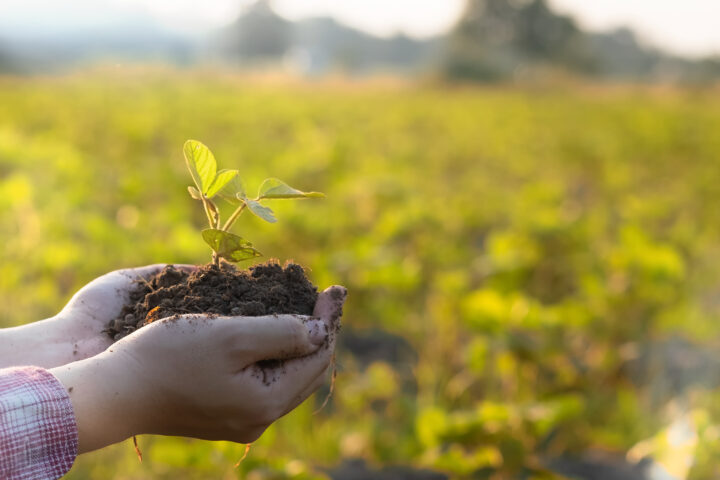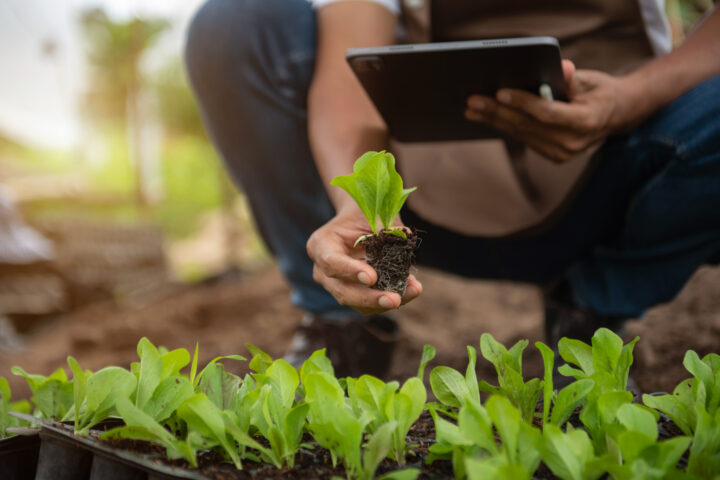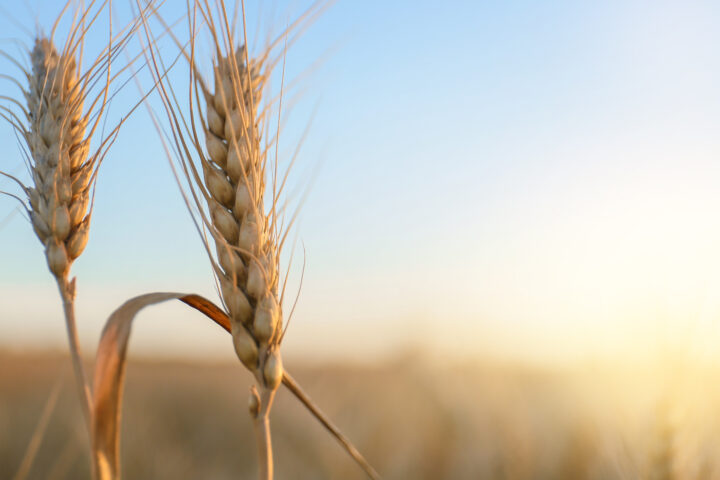
Climate change: lower harvests starting as early as 2030?
Climate change affects the quality and quantity of harvests. According to a recently published study, there is a risk of significantly lower maize harvests as early as the mid-2030s. Africa and South America are primarily affected. However, Europe must also be careful that agricultural production is not neglected.
Wednesday, November 3, 2021
In brief:
- Climate change is reducing agricultural harvests sooner than expected.
- Corn yields will fall drastically within the next 20 years. Rice and soybeans will also bring in significantly lower harvests. This result is arrived at by an international research team with participants from American, German and Austrian institutes.
- Tropical and subtropical areas will be particularly affected. However, more should be done for food security in Europe too. Further extensification of agriculture is the wrong approach.
As the "Neue Zürcher Zeitung" reports, an international research team has dealt with the effects of climate change on the world's most important crops. The results were published in the journal "Nature Food". The researchers come to the conclusion that climate change will affect crop yields sooner than previously assumed. This applies in particular to corn and rice, as well as soybeans. According to the study, the first negative effects on the corn harvest could already become apparent as early as 2032.
A multitude of factors
A number of factors are responsible for poor harvests. These include more intense periods of drought and heat, the increase in average temperature, changes in rainfall and the increase in CO2 concentration in the air. As the "NZZ" writes, however, it is difficult to make precise predictions from the complex interactions between the individual factors. For example, an increased CO2 concentration in the atmosphere could even have a positive effect on the growth of corn. However, corn does not like higher temperatures. One thing is clear: Sooner or later, climate change will have a negative impact on agricultural yields.
Global South particularly affected
Matin Quaim, agricultural economist and director of the Center for Development Research in Bonn, told the "NZZ" that the results should be taken seriously. The period for possible adjustments in agricultural production is becoming shorter. Without appropriate changes, some regions were threatened with supply shortages and even starvation. Tropical and subtropical growing areas are particularly affected by climate change. There, the changed climatic conditions have a particularly negative effect on plant growth.
As the "Landfreund" writes, climate change in poorer countries is also having a negative impact on the sometimes already precarious conditions in terms of food security. According to the authors of the study, corn yields, which are mainly generated in the Global South, could fall by up to 25 percent by the end of the century. In the case of wheat, which tends to grow in more northern regions, growing conditions could improve. The authors of the study expect yield increases of 17 percent there. However, it must be emphasized that new plant breeding technologies were not included in the study models. However, it is precisely these that could have a decisive influence on the breeding of drought and heat-resistant plant varieties.
Extensification is not an option
However, the conclusion of the “NZZ”, according to which food security in Europe is not at risk, must be viewed critically. According to studies by the University of Wageningen, the "Green Deal" concluded by the EU will lead to a 20 percent drop in European agricultural production. This is because the basic idea behind the strategy is an extensification of production. The EU will have to import more agricultural goods from other regions, which in turn will reduce supply there and, in the worst case, threaten the food security of millions of people. The relocation of production to other areas exports the ecological footprint and increases the risk for security of supply - especially if supply is also becoming scarce elsewhere. It is as if a pair of scissors is opening.
Extensive farming is the wrong approach in view of the threat of reduced yields due to climate change. In addition, higher land use also has a negative impact on biodiversity. A study by the University of Cambridge concludes that that biodiversity is better served with intensive production on smaller areas. In this way, valuable habitat for living beings can be conserved around the globe and left to nature. A country like Switzerland, which has only a small area but sufficient water and good soil in the Swiss Plateau, should use it as optimally and resource-efficiently as possible.
Sources
Related articles

Lack of diversity becomes an existential problem
The dwindling genetic diversity in fields is becoming an increasing problem. Unfortunately, this problem is growing steadily, partly because politicians in Switzerland and the EU are viewing the issue through ideological lenses instead of listening to science.

Research into fungal diseases in Lyon
Fungal diseases are one of the greatest threats to global food production. They endanger crops, cause billions in damage every year and have always put farmers under pressure. A detailed report by RTS provides insights into Bayer's global research and development centre in Lyon, where new, environmentally compatible fungicides are being researched.

Science sounds the alarm: Federal Council draft slows down innovation
The new genomic breeding methods are regarded worldwide as a source of hope for climate-resilient agriculture – precise, efficient, and safe. While countries such as the US, Japan, and soon the EU are pushing for deregulation, the Federal Council's regulatory proposal remains tentative. Now researchers and industry are sounding the alarm: the proposed rules are so strict that they would effectively block innovation and application.

Approvals are becoming a brake on innovation worldwide – and agriculture is being left behind
New findings from the United States highlight what has long been a reality in Europe and Switzerland as well: the development and approval of new crop protection products has become such a complex, lengthy, and costly process that even innovative, sustainable solutions can hardly reach the market anymore.

